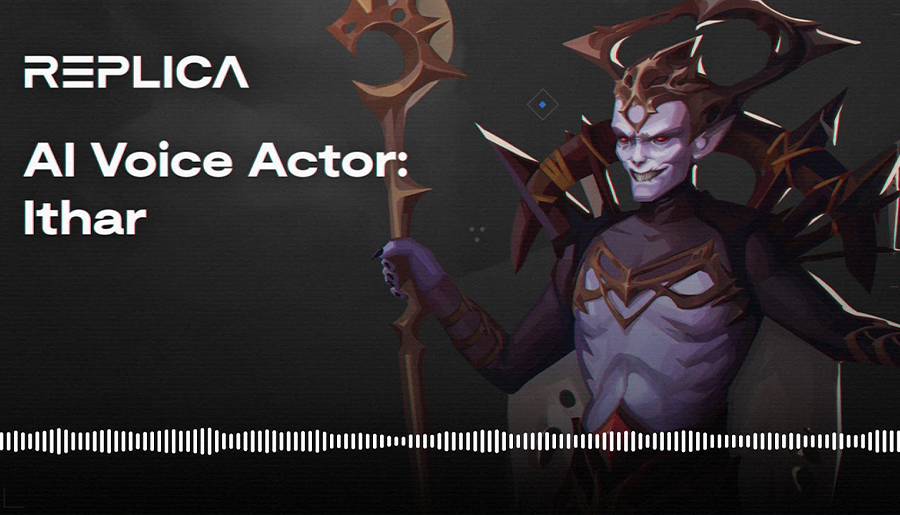For better or worse, the future is now. The Screen Actors Guild – American Federation of Television and Radio Artists (SAG-AFTRA) is now allowing its union members to sell a copy of their voice to Replica Studios. Each voice will then be turned into an AI programme that can be used in various projects, including video games.
What this means is that the narrator of 2028’s Call of Duty game might not be a human, but rather, an AI file that’s replicating the voice of a SAG-AFTRA member.
According to SAG-AFTRA, it’s a huge win for its members’ voice actors. The union’s argument is that by legalising this type of work, they can prevent their voice actors from being exploited. Under the terms of SAG-AFTRA’s new agreement, voice actors will get a minimum wage for this work, humane conditions, and the ability to retract their voices from being used in certain projects.
SAG-AFTRA’s AI Voice Deal
In a statement made on January 9, SAG-AFTRA’s National Chief Negotiator, Duncan Crabtree-Ireland, was pleased with the deal that was made.
“Recent developments in AI technology have underscored the importance of protecting the rights of voice talent, particularly as game studios explore more efficient ways to create their games,” Crabtree-Ireland said. “With this agreement, we have achieved fully informed consent and fair compensation when it comes to the use of our members’ voices and performances.
However, it’s worth noting that numerous members of the voice-acting community aren’t pleased with this deal, as they believe it will steal jobs from real people and make the voice-acting community smaller.
The voice actors concerned about this deal include the likes of Steve Blum and Clifford Chapin. Blum is known for voicing Lex Luther in Infinite Crisis, while Chapin is known for Dragon Ball Super.
In a message to SAG-AFTRA, Blum wrote, “With all due respect, you state in the article, ‘Approved by affected members of the union’s voiceover performer community.’ Nobody in our community approved this, that I know of. Games are the bulk of my livelihood and have been for years. Who are you referring to?”
Likewise, Chapin said, “I thought the union was supposed to support and protect people, not feed them to the wolves.”
What’s more, artists in other industries are now concerned about what this will mean for them in the future. Is this deal an exception to the rule, or an inevitable future? The answer to this question is rather nuanced.
SAG-AFTRA’s Relationship With Its Voice Actors
As of 2024, SAG-AFTRA has around 160,000 members. However, most of these members aren’t full-time voice actors or don’t have an active interest in voice acting. In 2023, SAG-AFTRA asked its members if their video game performers should strike for better conditions. After the ballot was casted, only 27% of its members voted.
Due to such lacks of fervour, SAG-AFTRA has historically ignored the wishes of its voice actors. In 2017, SAG-AFTRA’s voice actors received a new deal, but many members weren’t happy with it, because they didn’t think it did enough to prevent US studios from overworking their actors and causing vocal strain.
Additionally, different voice actor concerns arose last year. In 2023, SAG-AFTRA negotiated with Hollywood’s studio system for better working conditions, but some believe that they threw voice actors under the bus in the process. Per the new SAG-AFTRA agreement, a studio can use an AI voice to dub an actor’s performance into a foreign language, which will likely lead to a decline in voice acting opportunities.
However, the majority of SAG-AFTRA’s members are very pleased with last year’s deal. According to the union, the deal they ratified received a 78% approval rating. SAG-AFTRA’s TV and film actors, who make up a sizeable amount of this union, are now scoring more equitable wages across the board. They also received numerous protections from their likeness being used by AI.
AI Voice Actors: A Sign of Things to Come?
So, what does all of this mean for the future of AI in Hollywood? Well, it means that large groups of artists, like TV and film actors, can rally against the tendrils of AI — at least for now. But for smaller communities, lone artists, and niche subsets within certain unions, like voice actors, we may see AI continue to make gains, for better or worse.
Related: Why Is The New York Times Suing OpenAI? The Facts
Related: Move Aside, Mum — Meet the AI Bot Reading Our Children to Sleep
Read more stories from The Latch and subscribe to our email newsletter.

